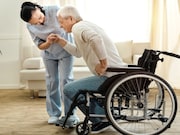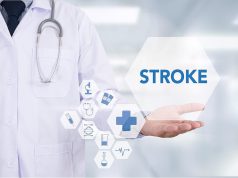Home-based support network includes social work case managers and online resources
WEDNESDAY, Aug. 7, 2019 (HealthDay News) — Stroke patients discharged with a case manager and access to an educational website reported significantly greater improvements in physical health after three months compared with those who had traditional care, according to a study published in the July issue of Circulation: Cardiovascular Quality and Outcomes.
Mathew J. Reeves, Ph.D., from Michigan State University in East Lansing, and colleagues randomly assigned 265 acute stroke patients to three treatment groups: usual care, home-based social worker-led case management (SWCM), and SWCM+Michigan Stroke Transitions Trial (MISTT) website (patient-orientated information covering stroke education, prevention, recovery, and community resources). Patients were either discharged directly home or returned home within four weeks following discharge to a rehabilitation facility. At seven and 90 days, outcomes data were collected by telephone.
The researchers found statistically significant changes in Patient-Reported Outcomes Measurement Information System (PROMIS) physical health (P = 0.003) and the Patient Activation Measure (PAM; P = 0.042), but not PROMIS mental health (P = 0.56). For SWCM+MISTT website, the mean change in PROMIS physical health scores was significantly higher than in the SWCM group (difference, +2.4; 95 percent confidence interval [CI], 0.46 to 4.34; P = 0.02) and usual-care group (difference, +3.4; 95 percent CI, 1.41 to 5.33; P < 0.001). The mean change in PAM scores for SWCM+MISTT was significantly higher than for SWCM (difference, +6.7; 95 percent CI, 1.26 to 12.08; P = 0.02) and was marginally higher than for usual care (difference, +5.0; 95 percent CI, −0.47 to 10.52; P = 0.07).
“These patients get great care when they’re in the hospital, but once they get home, they’re often lost,” a coauthor said in a statement. “It was important for us to really understand what mattered to them and then figure out what kind of support structure could alleviate the worry.”
Copyright © 2019 HealthDay. All rights reserved.








